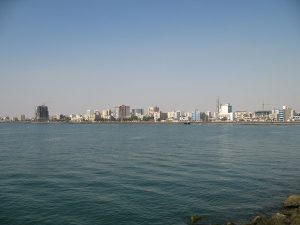The recent Iran-U.S. tensions following the killing of top Iranian military commander Qassem Soleimani threatened to escalate into a major military confrontation in the Middle East. Tashkent reacted by issuing a statement encouraging both sides to maintain maximum restraint and called on the parties to turn to diplomatic channels to avoid disrupting vital economic relations and transportation connections in the region.
The official statement hid Uzbekistan’s far greater concerns and the high costs Tashkent would have endured if Iran and the United States entered military confrontation in earnest. At stake are decades of effort on the part of Tashkent to build relations with Iran. Iran is double-landlocked Uzbekistan’s best pathway to world markets and access through the country would enable Tashkent to diversify its transportation routes. For Tashkent, Iran’s ports offer the cheapest and shortest transportation options.
Tashkent has invested a lot of time and effort, particularly in the past two years, in building robust transportation relations with Iran. In December 2017, Uzbek President Shavkat Mirziyoyev issued a decree to diversify the country’s transportation options. The decree singled out the “Uzbekistan-Turkmenistan-Iran-Oman,” “China-Kyrgyzstan-Uzbekistan,” and the Trans-Afghan corridors. The three Trans-Afghan corridors start with an existing rail line from Uzbekistan’s Termez to Afghanistan’s Mazar-i-Sharif. In the future, from Mazari-Sharif the route will go Afghanistan’s Herat and from Herat the railroad would branch into three corridors – the first connecting to Iran’s Bandar Abbas seaport; the second to Iran’s Chabahar; and the third to Iran’s Bazagan, which is close to Turkey and opens the possibility of access to the Black Sea.
Iran figures prominently in the list of future transportation options. As the last and most important node in the various Trans-Afghan corridors and the “Uzbekistan-Turkmenistan-Iran-Oman” corridor, Iran is the entry point to sea ports.
Iran’s Bandar Abbas port is a significant point for Uzbekistan’s imports and exports nowadays as well. Uzbekistan’s international cargo mainly passes through Tashkent-Bandar-Abbas (via Turkmenistan) along with Tashkent-Almaty and Tashkent-Moscow transit routes. According to a 2009 Asian Development Bank report, Bandar Abbas offered the main gateway for Uzbekistan’s cotton exports. Annually, around 40,000 trucks from Uzbekistan cross into Turkmenistan destined for the Bandar Abbas port, carrying products back and forth.
Tashkent is spearheading financial and political efforts to construct the Mazar-i-Sharif-Herat section of the railroad in Afghanistan with the help of the Asian Development Bank. These efforts would come to naught if a large-scale conflict erupted in Iran. Tashkent’s efforts to negotiate with the Afghan government and the Taliban to establish peace in the country, even incorporating Iran in their efforts, would have been under threat.
A conflict would have jeopardized the 2011 Ashgabat Agreement, which facilitates transportation between Central Asian and the Persian Gulf and includes Uzbekistan, Oman, Iran, Turkmenistan, Kazakhstan, Pakistan, and India. The significance of the agreement is demonstrated by Tashkent’s efforts to encourage India’s accession in 2018.
Barely a month before the recent escalation of tensions between Iran and the United States, on December 12, 2019, Iran’s Ministry of Industry, Mines, Trade and Uzbekistan’s Ministry of Investments and Foreign Trade met to discuss the details of tapping into Iran’s transportation capabilities. Iran offered Uzbekistan access to North African countries and was ready to negotiate special trade tariffs. The trade turnover between the countries reached $213 million in the first six months of 2019, a 40 percent increase from the same period in 2018.
Tashkent’s limited statement on the escalation of the situation in the Middle East said little about its deep concerns. Decades worth of financial and political investments could have evaporated. As Tashkent seeks to diversify its economic relations, Iran continues to loom large in these calculations. For Uzbekistan, not only do Iranian ports offer the shortest and cheapest route to the sea, but several future rail projects cannot be accomplished without Tehran’s active participation.

































